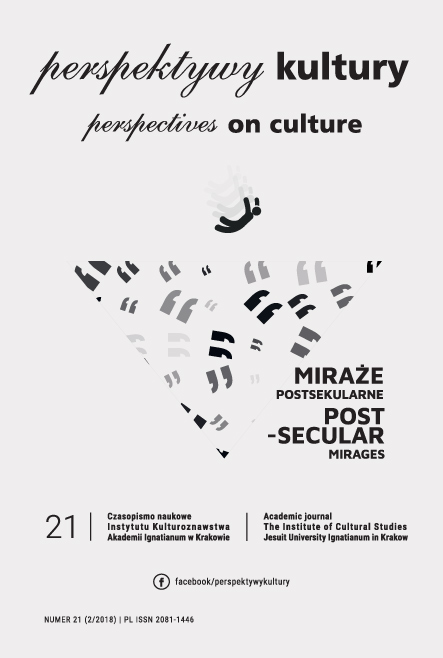Influence of the organizational culture on the work management of the man
Abstract
All the traditional management theory based on the idea monocul ture, which is the unity of the cultural organization, managed. Until today, drew attention to the variety of cultures that occur within the framework of the existing enterprises. This, the multicultural organ ization stems directly from the size of the social roles carried out by their members. Man must be not only to national and local communi ty, but also to groups: family, conferences, professional, industry, to po litical organizations, etc. Each of these groups is characterized by some kind of its own culture and with more or less successful attempts to so cialization of its members, that is, instill a man some work: patterns, principles, norms and values of the culture of using sanctions, that is, environmental awards and penalties. Map of cultural diversity any or ganization can be very complex, covering all of these types of groups with a certain cultural characteristics. This creates very serious prob lems in the sphere of communication and interaction between the par ticipants and organizations in the field of cohesion and the unity of ac tion. To troubleshoot these problems are organizational culture, which is a kind of plane and the arrangements between the different cultures existing and active in the enterprise. Today, each management is inter cultural management, because it is made in a multicultural environ ment and requires mediation between different cultures. The success of mediation between cultures depends on the strength of the organi zational culture and its functionality because of the two goals, adapt to the environment and internal integration. Organizational culture is primarily a creation of natural and not artificial, and therefore it can be treated only as a social space of intercultural mediation, carried out in mode: tender, negotiations, influence change, persuasion, take, some times exchange. Cultural diversity management strategies in the enter prise is based in varying degrees on two conflicting philosophical as sumptions about the relation to multiculturalism. For observing her as an opportunity or as a threat. Since multiculturalism is a source of both opportunities and risks for the company.
Organizations must have a dominant culture may not consist only of the many subcultures as she would decrease the value of the culture of the Organization as an independent variable. There would be no common understanding of what constitutes appropriate behavior and inappropriate undertaking. Those aspects of the culture of the Organi zation are such that it becomes so powerful an instrument drive beha- vior and shaping them into a man.
References
BAUMAN Zygmunt. 1995. Wieloznaczność nowoczesności – nowoczesność wieloznaczności, Warszawa: Wydawnictwo Naukowe PWN.
BOKSZAŃSKI Zbigniew. 1997. Stereotypy a kultura, Wrocław: Fundacja na Rzecz Nauki Polskiej.
BRODA Jerzy, MUSIAŁ Aldona, RĄB Jacek. 2005. Czy dwie kultury?, Zabrze: Stowarzyszenie Na Rzecz Rozwoju Nauki Polskiej.
CAMERON Kim S., QUINN Robert E. 2003. Kultura organizacyjna – diag- noza i zmiana, Kraków: Oficyna Ekonomiczna.
HARRISON Lawrence, HUNTINGTON Samuel. 2003. Kultura ma znacze- nie, Poznań: Zyski S-ka.
HOFSTEDE Geert. 2000. Kultury i organizacje, Warszawa: Polskie Wydaw nictwo Ekonomiczne.
KARCZEWSKI Leszek, KRETEK Henryk. 2014. Kulturowe, społeczne i etyczne uwarunkowania biznesu, gospodarki i zarządzania, Opole: Oficyna Wydawnicza Politechnika Opolska.
KARCZEWSKI Leszek, KRETEK Henryk. 2015. Społeczne i kulturowe de- terminanty biznesu, gospodarki i zarządzania, Opole: Oficyna Wydawnicza Politechnika Opolska.
KARCZEWSKI Leszek, KRETEK Henryk. 2016. Kulturowe i etyczne aspek- ty gospodarki, biznesu i zarzadzania, Opole: Oficyna Wydawnicza Politech nika Opolska.
KILMANN Ralph H. 1985. Corporate Culture: Managing the Intangible Style of Corporate Life May Be the Key to Avoiding Stagnation, „Psychology To day” 19 (4): 62-68.
KOŁODZIEJ-DURNAŚ Agnieszka. 2005. Terenowe badania kultury organi- zacji, Szczecin: Economicus.
KOSTERA Monika. 1996. Postmodernizm w zarządzaniu, Warszawa: Pań stwowe Wydawnictwo Ekonomiczne.
KOŹMIŃSKI Andrzej K. 1999. Zarządzanie międzynarodowe. Konkurencja w klasie światowej, Warszawa: Państwowe Wydawnictwo Ekonomiczne KOŹMIŃSKI Andrzej K., PIOTROWSKI Włodzimierz, 1996. Zarządzanie – teoria i praktyka, Warszawa: Wydawnictwo PWN.
MISIAK Władysław. 2004. Narodowe cechy kultury organizacyjnej w biznesie, Warszawa: Wydawnictwa Uniwersytetu Warszawskiego.
STEINMANN Horst, SCHREYOGG Georg. 1998. Zarządzanie. Podstawy kierznia przedsiębiorstwem, Wrocław: Oficyna Wydawnicza Politechniki Wrocławskiej.
SUŁKOWSKI Łukasz. 2002. Kulturowa zmienność organizacji, Warszawa: Państwowe Wydawnictwo Ekonomiczne.
ZBIEGIEŃ-MACIĄG Lidia. 2002. Kultura w organizacji. Identyfikacja kultury znanych firm, Warszawa: Wydawnictwo PWN.
ZBOROŃ Halina. 2004. Kapitał społeczny w refleksji etycznej, w: Kapitał spo- łeczny – Aspekty teoretyczne i praktyczne, Henryk JANUSZEK (red.), 98-113. Poznań: Wydawnictwo Akademii Ekonomicznej w Poznaniu.
Copyright (c) 2018 Jesuit University Ignatianum in Krakow

This work is licensed under a Creative Commons Attribution-NoDerivatives 4.0 International License.
Autor, zgłaszając swój artykuł, wyraża zgodę na korzystanie przez Wydawnictwo Uniwersystet Ignatianum z utworu na następujących polach eksploatacji:
- utrwalania utworu w formie papierowej, a także na nośniku cyfrowym lub magnetycznym;
- zwielokrotnienia utworu dowolną techniką, bez ograniczenia ilości wydań i liczby egzemplarzy;
- rozpowszechniania utworu i jego zwielokrotnionych egzemplarzy na jakimkolwiek nośniku, w tym wprowadzenia do obrotu, sprzedaży, użyczenia, najmu;
- wprowadzenia utworu do pamięci komputera;
- rozpowszechniania utworu w sieciach informatycznych, w tym w sieci Internet;
- publicznego wykonania, wystawienia, wyświetlenia, odtworzenia oraz nadawania i reemitowania, a także publicznego udostępniania utworu w taki sposób, aby każdy mógł mieć do niego dostęp w miejscu i czasie przez siebie wybranym.
Wydawca zobowiązuje się szanować osobiste prawa autorskie do utworu.





